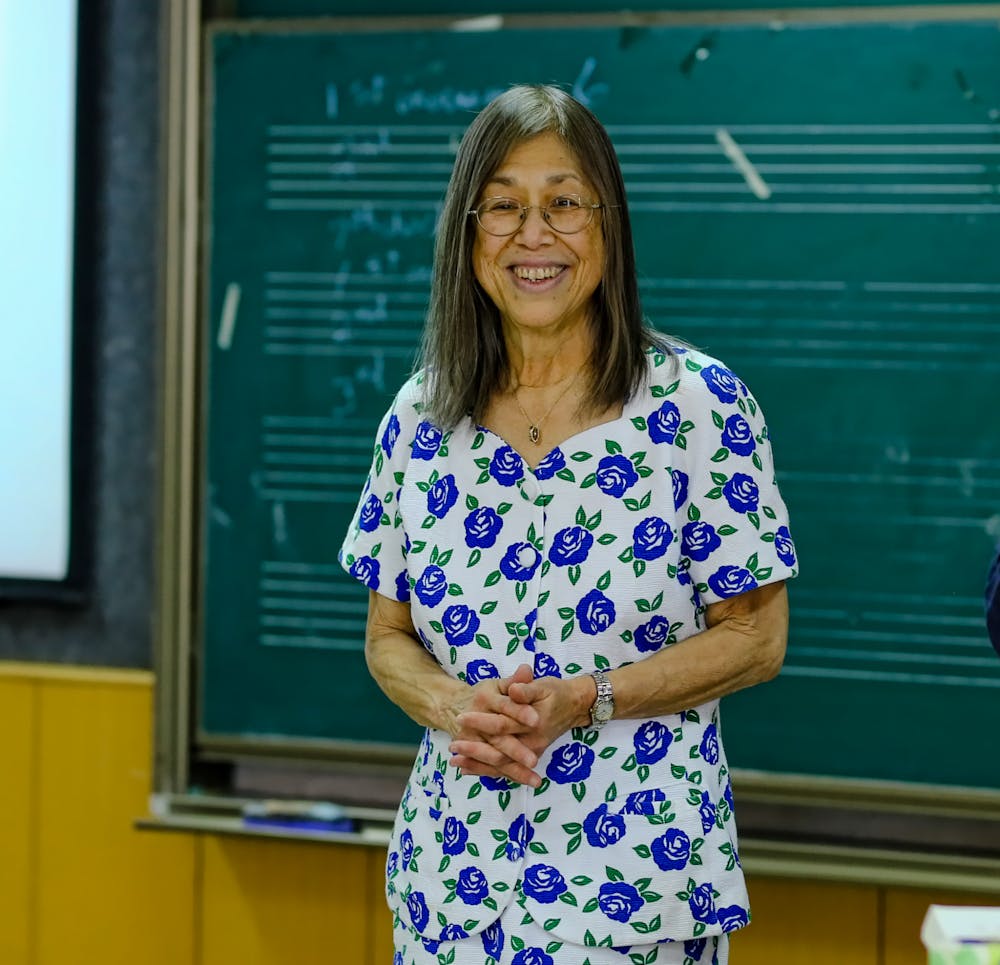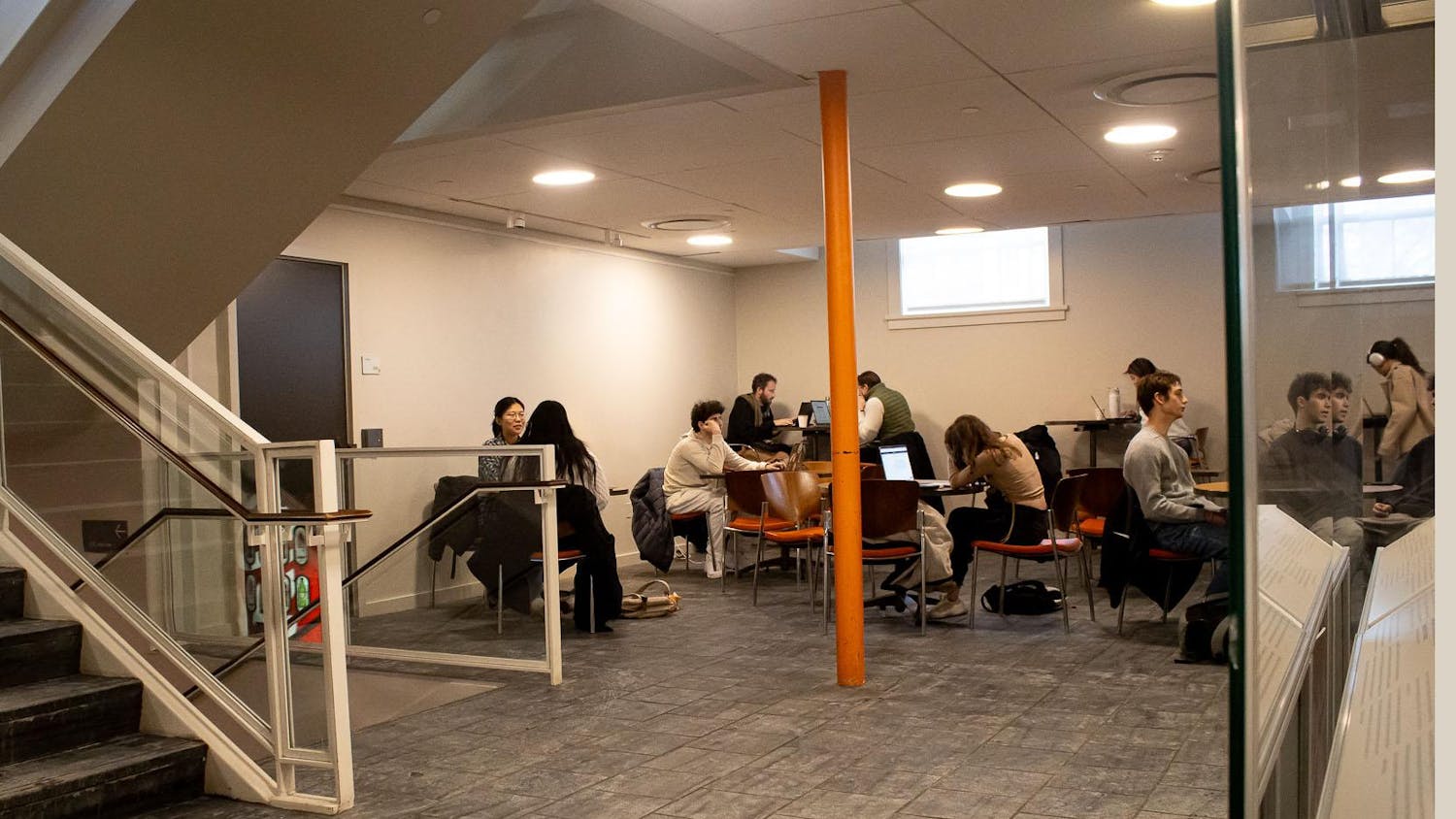Sarah Schuster ’11 can still vividly picture Arlene Cole, assistant professor of the practice of music, playing the piano in one of the Orwig Music Building’s many practice rooms. She distinctly remembered how Cole would perform without looking at the keys, instead studying her students with “a very expressive gaze.”
“Her brain was doing math and also melody at the same time, … translating that to her fingers (while she was) looking at us, asking us questions” and making students laugh, Schuster said. “I can’t explain how crazy, complicated and brilliant what she was doing was.”
Cole died Aug. 17 at age 79, leaving behind a 50-year legacy at the University in which many former students, colleagues and friends said she established herself as a foundational part of the music experience at Brown. The music department held a memorial event Sept. 30 and created a website so that those close to Cole could virtually share their memories.
Cole came to Brown in 1970 following a rich musical education at the Eastman School of Music and Yale University, according to an obituary written in her honor. At Brown, Cole taught musicianship classes, music theory labs and theory courses that allowed her to connect with nearly every student interested in pursuing music at the University. She also served as the director of the Applied Music Program for Keyboard, in which she taught keyboard lessons, organized visiting artist recitals and oversaw the department’s two annual student recitals. A brunch recital that occurs every Family Weekend was renamed in her honor in 2021 following her retirement.
“She was the glue” of the music department, said Nat Seelen ’08, a former student of Cole. “She was an institutional memory in a person. She touched every single one of us that walked through (Orwig’s) doors.”
In the months following her passing, The Herald spoke with several of Cole’s former students, colleagues and friends about her character and legacy. Cole leaves behind a sense of community and passion for art among her students and colleagues.
Making a family in the music department
Ben Bachmann ’23.5 first met Cole when he was taking a pre-college summer course on campus. Interested in Brown’s music programs, Bachmann emailed Cole and asked if she would speak with him about the department.
During their first meeting, Cole showed Bachmann around campus and had him perform for her, which Bachmann remembers as both nerve-wracking and exciting. She also gave Bachmann access to Orwig’s practice rooms that summer. A year later, when Bachmann returned to campus for International Undergraduate Orientation, he ran into Cole and was surprised that she still remembered him from the summer before.
“The most indicative thing (of Cole’s character) was how she treated me when I first met her, … before I was even a student,” he said. “She really went out of her way to make me feel welcomed.”
For University Organist Mark Steinbach, Cole’s people skills and genuine interest in others made her beloved among the department’s faculty and students. Steinbach accompanied Cole to the Xi’an Conservatory of Music in Shaanxi, China for a five-day residency in 2018, where he recalled how “she was able to build community wherever she went.”
Several former students who spoke with The Herald agreed that Cole played a major role in recruiting them to the University’s music department and solidifying their music concentrations. When Ivan Tan ’09, now a University lecturer in music, studied at Brown, he said anyone interested in a music concentration would have to take around four semesters of courses with Cole — meaning she knew a majority of the students that visited Orwig on a daily basis.
Dana Gooley, professor of music and chair of the music department, remembered how Cole made an effort to get to know every student in the music program. “I’d bring up a student in a conversation with her and she would tell me all kinds of things she knew about them,” he said. “She knew everybody.”
“It’s easy to forget that (Cole) built the musicianship program at Brown, not only the caliber of music concentrators but also musicians of all kinds,” said Trevor Pollack ’09, another former student of Cole. She paid particular attention to ensuring that students knew about their options for pursuing music at the University beyond the concentration, he added.
Many undergraduates felt guilty for wanting to concentrate in music and often attempted to balance their passion with another field of study, Gooley said. Cole was sensitive to these pressures and made students feel that pursuing both music and another concentration was a good path to follow. Her availability and support were pivotal for students, he added.
Bachmann, who never intended to concentrate in music, remembers that Cole was always trying to make sure he didn’t lose sight of his connection with the piano. “She wanted to see her love for piano manifest through other people,” he said.
“More than anyone else, she was the person that drew people into the department,” said Tan, who also worked alongside Cole. “Even in her last year of teaching, … (Cole’s) classes were still full because people wanted to spend as much time as possible with Arlene.”
Norman Ryan ’85 said that he remembers Cole as a fixed presence in Orwig. He has vivid memories of talking with her every time he walked into the building about work he was doing both inside and outside of the music department. “Her energy and enthusiasm united people,” he said.
For Steinbach, it was Cole’s approach to interpersonal relationships that attracted students to her. She viewed people “holistically,” Steinbach said, often taking interest in students beyond their music concentrations.
Cole approached her working relationship with the faculty in the same, distinctly “maternal” way, said Tan, who credited her for making the department feel like a “home (and) a family.”
“She was the heart and soul of the department,” he added.
Pushing students to reimagine their limits
Inside Cole’s classroom, Tan remembered a distinct “family atmosphere” where students were all supportive rather than competitive of each other.
Throughout her University career, Cole focused entirely on teaching, often dedicating her weekends to holding extra practices for students that needed the help, according to Steinbach. From a colleague’s perspective, he believes that this dedicated instructional style attracted students of all skill levels to Cole’s courses.
“She gave 150% and expected, in return, that her students would be accountable” for themselves, Steinbach added. “That was one of her successes — she demanded a lot of her students and most people rose to the occasion.”
While Cole was always “warm and friendly,” her classes always proved rigorous, Seelen said. “She always pushed us, but with a smile.”
Cole knew how to gauge students’ capabilities and was always trying to “push a little past” that level, Gooley said. She was able to test the musical limits of each individual student without ever being discouraging, and “that’s very hard to do.”
Tan met Cole as a first-year and remembers feeling “burnt out” when he was accepted into Cole’s piano studio. He soon found that Cole was his first piano instructor who insisted on developing an understanding of music theory among her students — she went beyond the practical elements of playing an instrument. Tan remembers that Cole would always push him to question and justify his performance decisions, and slowly his relationship with the piano began to heal.
“She was not afraid of pushing students to do stuff that seemed impossible and that she believed they could do,” Tan said. “Even if you had to fight your way (to the new limit), she would encourage and guide you through it and make sure you didn’t go too far off the rails.”
Schuster said that Cole had “an amazing amount of energy” in the classroom for a professor that had been teaching for decades. For Schuster, Cole’s infectious excitement for music made her an effective instructor and allowed her to capture the attention of every student in her class.
During Schuster’s time as an undergraduate, Cole helped teach MUSC0550: “Theory of Tonal Music I” and MUSC0560: “Theory of Tonal Music II.” These courses were some of the most intense commitments a first-year could make at the University as they met every day of the week, Schuster said. Despite this commitment, Cole was “able to engage every student” that was taking the course, she said.
“She was an incredibly compassionate and supportive person,” she added. “You would have this amazing academic experience, but if you needed somebody to help you out,” Cole was there.
Passing down an unwavering commitment to music
Tan remembers his first time in Orwig following the start of the pandemic fondly — spent helping Cole clean out her office in preparation for her retirement. Throughout the day, he and Cole chatted about her plans to move to a new house in Providence and took several breaks to watch self-produced senior recital videos from students.
Cole’s office was a collection of her decades-long run at the University — full of gifts from former students, mementos from her trip to China, recordings of student recitals and several music theory books that Tan still uses today.
“If I can be 10% as good (of a professor) as she was, it will feel like a big accomplishment to me,” he said. Teaching is about “making sure students feel both comfortable but also challenged. She recognized that they need to feel safe, to some degree, in order to experiment.”
“I learned what to do (from Cole). She set such a high standard” for teaching, Gooley said. “She taught me how to turn the affection of students into an opportunity to make them learn more.”
Bachmann will also keep a physical reminder of Cole’s impact, one of the piano scores she gifted to several students following her retirement, each tailored to their interests.
But Cole’s legacy is felt beyond the mementos she left behind. It was Cole that inspired Ryan to pursue a career in music; he now works at Schott Music, one of the largest music publishing houses in Europe.
“The commitment that she showed to the highest possible standard of musical performance and study” was inspirational, Ryan said. “She was able to combine … music as an art and as enjoyment with absolute commitment.”
“She passed that drive on to all of her students,” he added. “It’s a great legacy.”

Alex Nadirashvili was the managing editor of multimedia and social media for The Brown Daily Herald's 133rd Editorial Board. As a former University News editor, he covered faculty, higher education and student life, though his proudest legacy is The Brown Daily Herald TikTok account.





